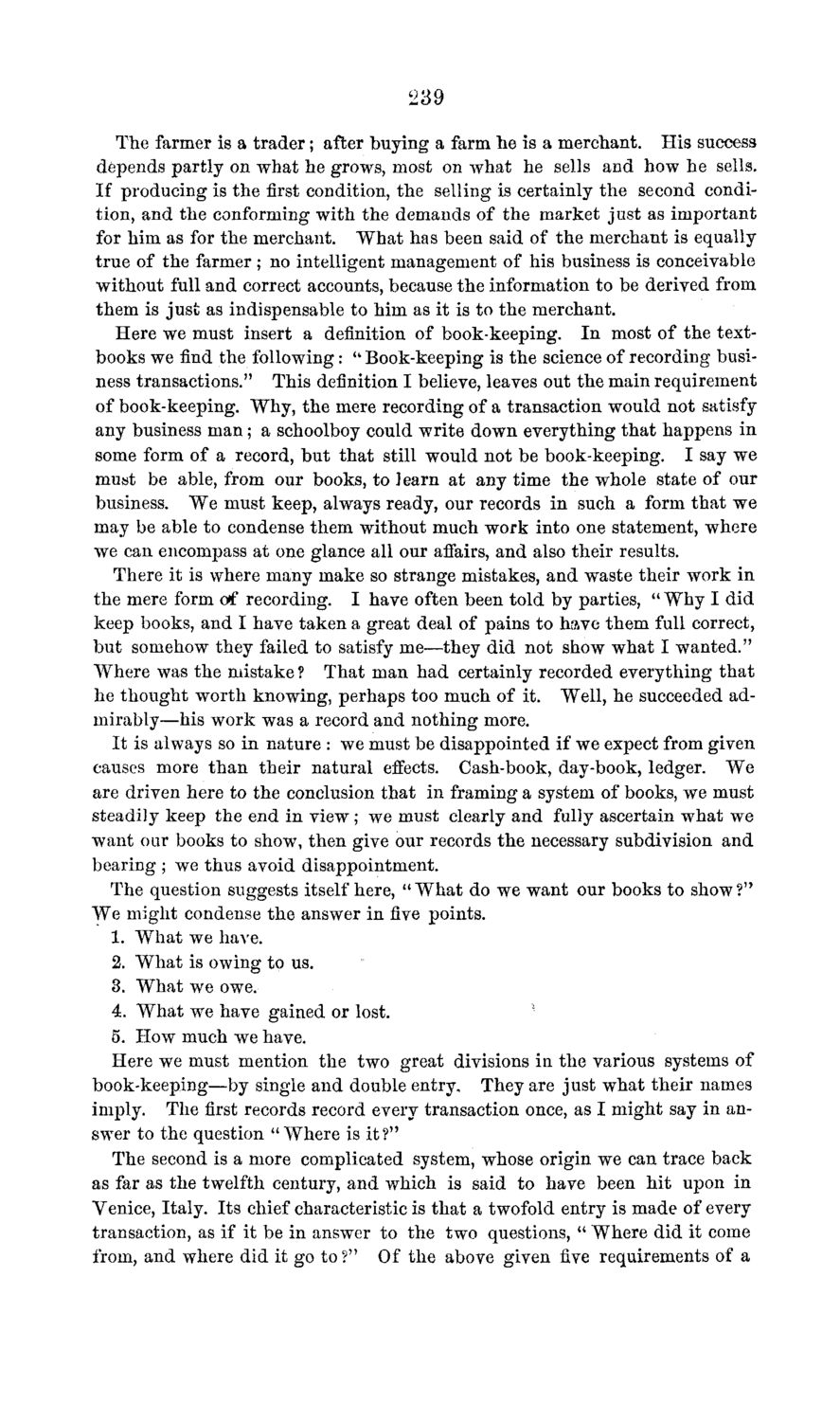| |
| |
Caption: Board of Trustees Minutes - 1869
This is a reduced-resolution page image for fast online browsing.

EXTRACTED TEXT FROM PAGE:
239 The farmer is a trader; after buying a farm he is a merchant. His success depends partly on what he grows, most on what he sells and how he sells. If producing is the first condition, the selling is certainly the second condition, and the conforming with the demands of the market just as important for him as for the merchant. What has been said of the merchant is equally true of the farmer; no intelligent management of his business is conceivable without full and correct accounts, because the information to be derived from them is just as indispensable to him as it is to the merchant. Here we must insert a definition of book-keeping. In most of the textbooks we find the following: u Book-keeping is the science of recording business transactions." This definition I believe, leaves out the main requirement of book-keeping. Why, the mere recording of a transaction would not satisfy any business man; a schoolboy could write down everything that happens in some form of a record, but that still would not be book-keeping. I say we must be able, from our books, to learn at any time the whole state of our business. We must keep, always ready, our records in such a form that we may be able to condense them without much work into one statement, where we can encompass at one glance all our affairs, and also their results. There it is where many make so strange mistakes, and waste their work in the mere form o*f recording. I have often been told by parties, " Why I did keep books, and I have taken a great deal of pains to have them full correct, but somehow they failed to satisfy me—they did not show what I wanted." Where was the mistake ? That man had certainly recorded everything that he thought worth knowing, perhaps too much of it. Well, he succeeded admirably—his work was a record and nothing more. It is always so in nature : we must be disappointed if we expect from given causes more than their natural effects. Cash-book, day-book, ledger. We are driven here to the conclusion that in framing a system of books, we must steadily keep the end in view; we must clearly and fully ascertain what we want our books to show, then give our records the necessary subdivision and bearing ; we thus avoid disappointment. The question suggests itself here, " What do we want our books to show ?" We might condense the answer in five points. 1. What we have. 2. What is owing to us. 3. What we owe. 4. What we have gained or lost. 5. How much we have. Here we must mention the two great divisions in the various systems of book-keeping—by single and double entry. They are just what their names imply. The first records record every transaction once, as I might say in answer to the question "Where is it?" The second is a more complicated system, whose origin we can trace back as far as the twelfth century, and which is said to have been hit upon in Venice, Italy. Its chief characteristic is that a twofold entry is made of every transaction, as if it be in answer to the two questions, " Where did it come from, and where did it go to?" Of the above given five requirements of a
| |